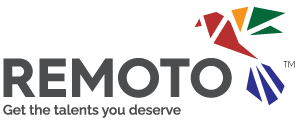Remote work has transitioned from a perk to a need for many companies globally, changing our perceptions of where and how we work. The concept of diversity has moved to the forefront of corporate strategies as teams become distributed across different time zones, cultures, and socioeconomic backgrounds,
Digital diversity refers to more than just demographic differences among team members. It entails experiences, perspectives, and capabilities promoted by digital platforms. Guaranteeing inclusion becomes a greater challenge and a critical success factor facilitated by digital platforms.
Do you want to learn more? In this blog post, we discuss digital diversity and how it contributes to an efficient workforce.
Understanding Digital Diversity
Digital diversity comprehends backgrounds, experiences, and ways to access technology in remote environments. It goes beyond physical location and includes cultural backgrounds, socio-economic status, and abilities.
Here are four types of digital diversity to consider:
- Cultural diversity: This entails various communication styles, work references, languages, and time zone considerations.
- Socio-economic diversity: It refers to socio-economic backgrounds and how they can determine access to reliable internet, high-quality devices, or dedicated workspaces.
- Geographical diversity: Remote work leads to a geographically dispersed workforce. Timezone differences and cultural norms within a region can create communication challenges.
- Ability diversity: Employees with disabilities may require specialized hardware software to perform their jobs in a remote setting.
The intersection between these types of digital diversity can create challenges for different groups in a remote company. Here are some examples:
- Limited access to technology
- Difficulties in collaboration and communication
- Isolation and exclusion
- Difficulties in keeping a work-life balance
If you want to deepen your understanding of diversity in the workplace, watch this TED talk!
The Power of Inclusion in Remote Teams
Remote work offers many benefits for businesses and employees alike. To unlock its full potential, creating an inclusive environment is crucial. Do you want to learn how?
An inclusive remote work culture empowers all team members to participate and contribute their unique perspectives. This leads to a richer exchange of ideas and improves team performance. Diverse teams are usually more innovative and effective at problem-solving.
In addition, inclusion fosters a positive company culture. When remote employees feel valued and respected, they become more engaged and experience a greater sense of belonging. This results in:
- Higher morale
- Improved retention rates
- Stroger overall work environment
Strategies to Promote Digital Diversity in Remote Work
Creating an inclusive environment is crucial for businesses intending to thrive in a diverse global market. Business strategies associated with digital diversity in remote work can help attract talent, foster innovation, and enhance employee satisfaction and loyalty.
Here, we explore the strategies you need to promote digital diversity in your company. These practices ensure your team members feel recognized and rewarded and have equal opportunities to succeed.
1. Digital Diversity in Recruitment and Hiring
Cultivating digital diversity starts in the recruitment phase.
We recommend you implement practices that ensure a diverse candidate pool. This can be achieved by advertising job openings on platforms popular among different demographic groups, such as LinkedIn, and using software that anonymizes applicant data to prevent unconscious bias.
Moreover, using bias-free recruitment technologies and techniques, like structured interviews and skill-based assessments, helps focus on candidates’ competencies rather than backgrounds or personal characteristics.
2. Digital Diversity in Onboarding and Integration
Once new hires are on board, guaranteeing equitable access to resources is vital. This means providing tools, training, and information in formats accessible to people with different abilities and identities.
To promote a sense of belonging from the start, you can pair new employees with a mate or a mentor and hold virtual meet-and-greet sessions to help build rapport.
3. Digital Diversity in Communication and Collaboration
Effective communication is important for successful remote work. You can invest in tools and practices that support clear and effective communication across distinct mediums. This includes:
- Training on digital platforms to enhance collaborative efforts
- Promoting an inclusive language and behaviors
- Schedule regular training sessions in inclusion matters
- Set clear guidelines on communication ethics
4. Digital Diversity in Professional Development and Growth
Ensuring all remote employees have access to training and career opportunities is another aspect of inclusion and digital diversity. This can be facilitated by:
- Online courses
- Webinars
- Virtual conferences
- Mentorship programs to support diverse talent and underrepresented groups
5. Digital Diversity in Work-Life Balance Initiatives
Remote work policies should consider the various personal and cultural needs of employees. This includes flexible working hours for:
- Different time zones
- Religious or cultural practices
- Family responsibilities
You can provide support systems for different life circumstances, such as offering parental leave or creating support groups for employees dealing with similar challenges, like schooling children from home.
By integrating these strategies, you can create a more inclusive environment that attracts diverse talent and supports their growth and satisfaction in the workplace.
Ensure Inclusion and Digital Diversity in Remote Work
Remote work has become popular, and businesses need to focus on embracing digital diversity in the workplace. To cultivate an inclusive environment, your company needs to acknowledge and celebrate digital diversity.
This can involve investing in tools and technologies to respond to a diverse range of communication styles, allowing for flexible work arrangements that:
- Accommodate different time zones and schedules
- Fosters a culture of respect and appreciation for individual differences.
By doing so, your company can tap into a wealth of unique perspectives, skills, and experiences, which can give them a more competitive edge.
Ultimately, creating an inclusive workspace where every team member feels valued and empowered to contribute their best can bring immense rewards to your business.














